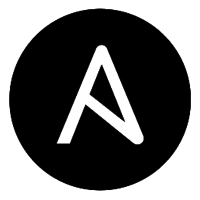Need advice about which tool to choose?Ask the StackShare community!
Apache Tomcat vs Jetty: What are the differences?
Introduction
Apache Tomcat and Jetty are both popular web servers and servlet containers used to serve Java web applications. While they have similarities in their functionality and purpose, there are also key differences between the two. This article will outline six key differences between Apache Tomcat and Jetty.
Configuration: One key difference between Apache Tomcat and Jetty is the way they handle configuration. Tomcat typically requires XML configuration files and a separate installation, while Jetty uses a more flexible approach with properties files and a lightweight embedded server. This makes it easier to configure and deploy applications on Jetty.
Embeddability: Another difference is in their embeddability. Jetty is often favored for embedded scenarios as it can be easily integrated into other Java applications and frameworks. It provides an API that allows developers to embed Jetty into their own applications, providing greater control over the server environment. Tomcat, on the other hand, is typically used as a standalone server and is not as easily embeddable.
Performance: In terms of performance, Jetty is known for its lightweight architecture and low memory footprint. It is designed to handle a high number of concurrent connections efficiently, making it well-suited for applications with high traffic. Tomcat, on the other hand, may require more resources and is generally considered to be slower than Jetty.
Community and Support: Apache Tomcat has a larger and more established community compared to Jetty. This means that Tomcat has a wealth of resources, documentation, and community support available, making it easier to find solutions to problems. Jetty, while still having an active community, may not have as extensive a support network.
Advanced Features: Apache Tomcat includes a wider range of advanced features and capabilities out-of-the-box, such as support for clustering, session replication, and load balancing. These features are not as readily available in Jetty and may require additional configuration or plugins.
Suitability and Use Cases: The choice between Apache Tomcat and Jetty often depends on the specific use case and requirements of the application. Tomcat is a good choice for larger, enterprise-level applications that require advanced features and a robust support network. Jetty, on the other hand, is well-suited for lightweight applications, microservices, and embedded scenarios where performance and embeddability are important factors.
In summary, Apache Tomcat and Jetty differ in their configuration approach, embeddability, performance characteristics, community support, availability of advanced features, and suitability for different use cases. The choice between the two depends on the specific requirements and priorities of the application being developed.
I was in a situation where I have to configure 40 RHEL servers 20 each for Apache HTTP Server and Tomcat server. My task was to 1. configure LVM with required logical volumes, format and mount for HTTP and Tomcat servers accordingly. 2. Install apache and tomcat. 3. Generate and apply selfsigned certs to http server. 4. Modify default ports on Tomcat to different ports. 5. Create users on RHEL for application support team. 6. other administrative tasks like, start, stop and restart HTTP and Tomcat services.
I have utilized the power of ansible for all these tasks, which made it easy and manageable.
Pros of Jetty
- Lightweight15
- Embeddable10
- Very fast10
- Very thin6
- Scalable6
Pros of Apache Tomcat
- Easy79
- Java72
- Popular49
- Spring web1
Sign up to add or upvote prosMake informed product decisions
Cons of Jetty
- Student0
Cons of Apache Tomcat
- Blocking - each http request block a thread3
- Easy to set up2
































